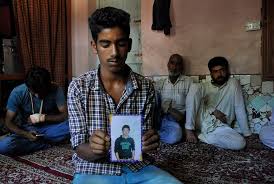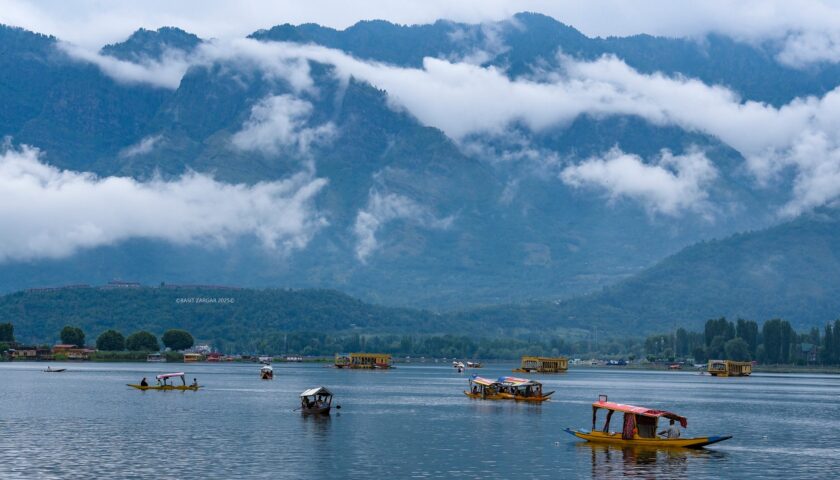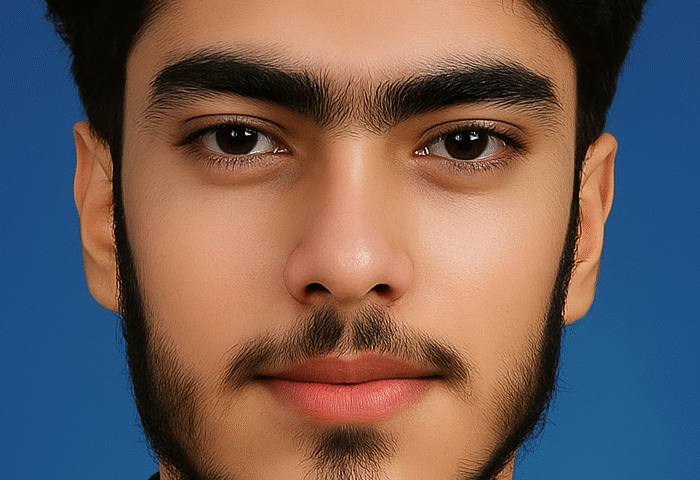At least 49 people have allegedly been killed by security forces and over 3000 have been injured since Burhan Wani’s death.
Adnan Bhat
 “Even if they lift the curfew, this uprising will not stop. We are ready to starve ourselves. Nobody should interfere in these protests, not even separatist leaders. We have lost our brother, and all we want now is Azaadi. We are still seven brothers left. We are all ready to die, if that is what it takes.”
“Even if they lift the curfew, this uprising will not stop. We are ready to starve ourselves. Nobody should interfere in these protests, not even separatist leaders. We have lost our brother, and all we want now is Azaadi. We are still seven brothers left. We are all ready to die, if that is what it takes.”
This is the message Javed Ahmed Dar from Takia Bhoramshah village of district Anantnag in South Kashmir wants to give to those “heartless men” who killed his 20-year-old brother Hilal Ahmed Dar.
The mood in the rest of the valley is no different. The fresh spate of killings in Kashmir following the death of Hizbul Mujahideen’s young commander Burhan Wani in an encounter is being perceived as a war on the local population. At least 49 people have allegedly been killed by security forces and over 3000 have been injured. The streets are seething with anger. The people don’t want a repeat of 2010, when over 120 people were killed in a three-month long protest against a fake encounter in Machil sector of Kupwara and then nothing happened.
To put things in perspective, even after separatist leaders had asked people to open shops after 2pm on 21 July, the entire valley remained shut. People in Anantnag district instead carried out a march carrying black flags and banners as a symbol of defiance.
What was his crime?
On 14 July, Hilal had left home for evening prayers but he never returned. He was shot in the head from close range, allegedly by a member of the Special Task Force of police. The bullet went through his eye socket and came out from the back of his head and ended up on the wall behind him on the peripheries of the national highway. He fell on the road barely 500 metres from his house. His younger brother Zahid, 14, who had gone to look for him, was the first to find him.
“I saw him getting hit. I rushed to him. He was bleeding. I took out my shirt and covered his head. I tried to plug his wound but that didn’t stop the bleeding. I stayed with him there until my older brother (Javed) came. We tried to rush him to the hospital but by the time we reached the district hospital in Anantnag, he was already dead,” says Zahid.
According to Zahid’s family, there were no protests going on in the area at the time, and the whole village had been peaceful until then. They also alleged that they were beaten up by security forces while taking Hilal to the hospital. His 26-year-old brother shows his broken hand as proof.
“He was more than a brother to me. He was like my own son. I had watched him grow up. He was a nice boy who helped me at work from time to time. He never pelted stones. He kept to himself mostly. What was his crime? Why did they kill him? Was he a militant? Did he have a gun in his hand?” asks Javed, the eldest of eight brothers.
Who will be left?
In South Kashmir, the killings began on the day Wani was killed in Kokernag area of South Kashmir. Almost immediately after news of Wani’s death broke thousands of people came out on the streets.
One of the first victims was Saqib Ahmed Mir of Achabal area of South Kashmir. A Class 9 student, Saqib had gone with his friends to the main road. He too never came back. He was shot in the head. Four others were killed in the days to follow in Achabal and its adjoining villages alone.
His mother, Shakeela Bano is still in a state of shock. She can’t come to terms with what has happened. She keeps losing consciousness since the day Saqib was killed.
“While they keep killing our kids on the streets, these politicians are talking about the future of our kids. They want to reopen schools. But who will be there to attend school?” Saqib’s uncle Mohammed Shafi Mir asked.
Night Protests
There is a shortage of essential commodities but people remain defiant. It’s seems as if no life ever existed here. The shops remain closed and there are hardly any people to be seen in Anantnag district even after forces retreat to their barracks in the evening.
“How can I resume business when I know somewhere a mother has lost her son? Today, it is they who are suffering, tomorrow it could be me or someone I know. We have given too much blood to accept anything less than Azaadi, it is now or never,” a 34-year-old shop owner said.
A procession of mostly young boys shouting slogans of Azaadi are the only ones on the streets. They move along the town, through the bylanes. They don’t throw stones. Instead, they are singing as they go along, “Kashmir Ka Tarjuman, Naujawan Naujawan” (The youth is the leader of Kashmir).




